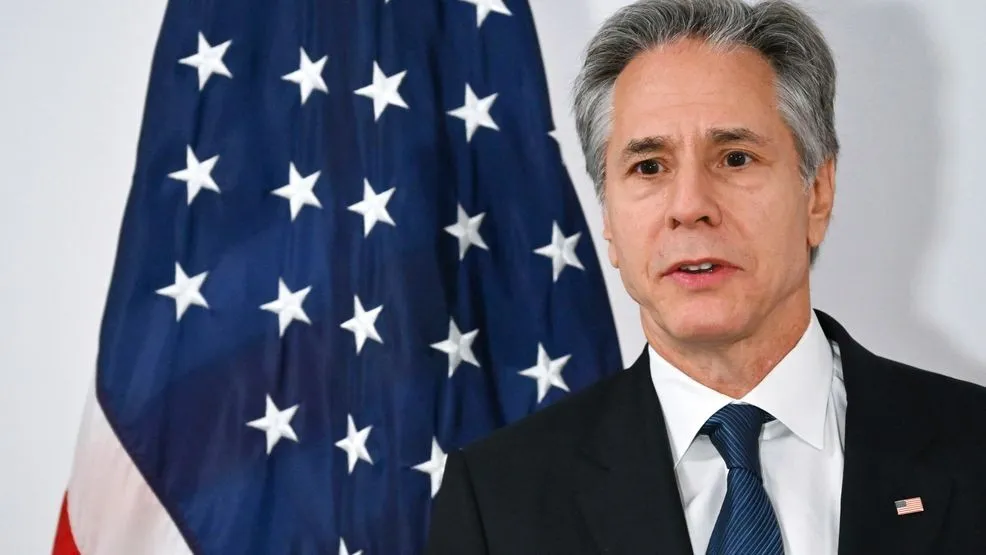WASHINGTON (TNND) -- Secretary of State Antony Blinken is making a long-awaited appearance before the House Foreign Affairs Committee just weeks before departing office after months of wrangling between the committee and State Department over the chaotic withdrawal from Afghanistan that resulted in the deaths of 13 U.S. service members.
Blinken's testimony comes after years of contention between the department and committee over documents, interviews and other disagreements over lawmakers' investigation into the withdrawal.
Despite receiving over 20,000 pages of records and multiple interviews with State Department staff, some of which came via subpoena, the committee was frequently at odds with Blinken and the department. It culminated in a party-line vote earlier this year to hold Blinken in contempt for failing to appear to testify before the committee that has yet to be taken up for a full House vote.
The State Department has argued that Blinken has testified before Congress 14 times on the Afghanistan withdrawal, while Foreign Affairs Republicans have accused him of skirting accountability by refusing to testify in front of it.
"While your presence here is duly noted, you are showing up only after violating a congressional subpoena, triggering consideration of a resolution holding you in contempt of Congress," said Rep. Michael McCaul, the committee's chair. "It was your duty to appear before this committee to inform us about legislative solutions to the issues outlined in my Afghanistan report, so that this never happens again."
Republicans and Democrats have pointed fingers at each other for the rapid deterioration of security in Afghanistan as the U.S. finally brought an end to its longest war. GOP lawmakers have placed the blame squarely on the Biden administration for failing to plan appropriately and foresee the rapid collapse of the Afghan government, while Democrats have said President-elect Donald Trump's decision to sign a deal with the Taliban put the White House in a no-win position to remove troops.
The House Foreign Affairs committee released a sweeping 354-page report on the withdrawal in September after years of investigation. In the report, it accused the Biden administration of prioritizing optics over security in a series of decisions that led to the deaths of 13 U.S. servicemembers and dozens of Afghans.
According to the committee's report, Biden and his administration repeatedly ignored warnings from military and national security officials and U.S. allies about removing all American troops from Afghanistan.
"During his decades-long tenure as a Delaware U.S. senator, eight years as vice president of the United States, and nearly four years as president, Mr. Biden has demonstrated distrust of America's military experts and advisors and has prioritized politics and his personal legacy over America's national security interests," the report said.
Blinken disputed Republican allegations that the president prioritized optics and politics in moving forward with the withdrawal and placed some of the blame on the Trump administration's Doha Agreement. He also apologized to the family members of the troops that were killed in the suicide bombing at Abbey Gate as people rushed to flee the country and said he regretted the U.S. "did not do more and could not do more to protect them" in an opening statement that was repeatedly interrupted by protesters over the war in Gaza.
"To the extent President Biden faced a choice, it was between ending the war or escalating it," Blinken said. "Had he not followed through on his predecessor's commitment, attacks on our forces and allies would have resumed and the Taliban's assault on the country's major cities would have commenced."
Multiple Democratic lawmakers pointed to the Trump administration's Doha Agreement as leaving Biden with no viable options to secure an orderly withdraw.
"If you're going to be factual about this, you've got to consider the conditions that Trump handed over to you in the Biden administration, a firm commitment for a total withdrawal with no allowance for a residual force of core contractors, a limited number of troops on the ground, and no real prohibition or attacks on our Afghan allies," said Rep. Gregory Meeks, D-N.Y., the top Democrat on the committee.
GOP investigators also accused Blinken of being "largely absent" throughout the State Department's planning for a withdrawal and the evacuation in their report.
"Indeed, witnesses interviewed, and documents produced by federal agencies pursuant to the investigation, confirm Secretary Blinken likely ceded his responsibility to subordinates on Afghanistan," the report said.
According to the report, Blinken also advocated to keep the U.S. embassy in Kabul open regardless of the withdrawal to maintain a diplomatic presence despite objections from staff on the ground. The State Department ultimately agreed to close the embassy two weeks before troops departed Afghanistan.
